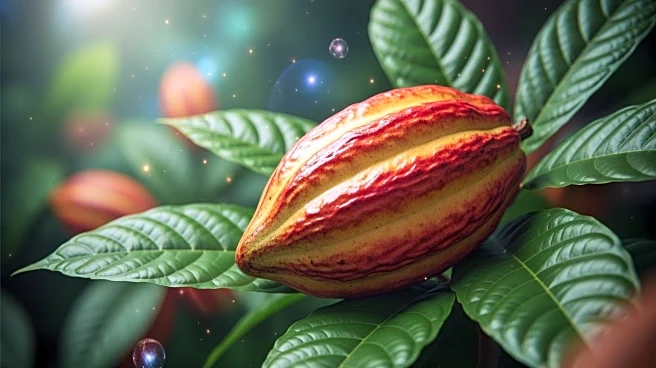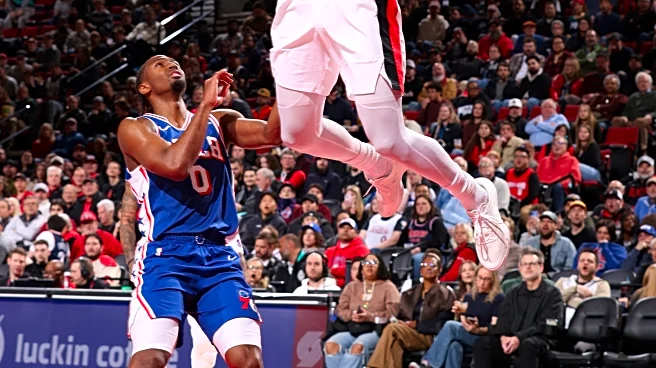What's Happening?
In the popular Roblox game 'Grow A Garden,' players have the opportunity to cultivate a rare and valuable plant known as the Cacao seed. This Divine-tier fruit is challenging to acquire due to its infrequent
appearance in the Seed Shop, where it has a 1 in 150 chance of being available during each restock. The Cacao seed can be purchased for 2,500,000 Sheckles or 679 Robux, though it is advised against spending Robux due to its high in-game currency cost. Once acquired, the Cacao plant can yield multiple harvests, with each fruit valued at a minimum of 10,830 Sheckles. Players can enhance the value of the fruit through mutations, potentially making it worth millions. The Cacao seed is also involved in special game events, such as the Ice King weather event, where it can be used to obtain exclusive items.
Why It's Important?
The introduction of the Cacao seed in 'Grow A Garden' adds a layer of strategy and economic opportunity for players. By cultivating this rare plant, players can significantly increase their in-game wealth, which is crucial for advancing in the game. The high value of the Cacao fruit encourages players to engage more deeply with the game's mechanics, such as seed mutations and event participation. This development not only enhances the gaming experience but also reflects broader trends in gaming where virtual economies and rare items drive player engagement and monetization strategies. Players who successfully acquire and cultivate the Cacao seed stand to gain a substantial advantage in the game, potentially influencing in-game market dynamics.
What's Next?
Players can expect continued interest in the Cacao seed as they strategize to maximize their in-game profits. The rarity of the seed will likely drive demand, leading to increased competition among players to acquire it. Future game updates may introduce new events or items that further enhance the value of the Cacao seed, keeping players engaged. Additionally, the game's developers might explore similar rare item introductions to maintain player interest and encourage ongoing participation. As players adapt to these changes, the in-game economy will continue to evolve, potentially leading to new strategies and gameplay dynamics.










